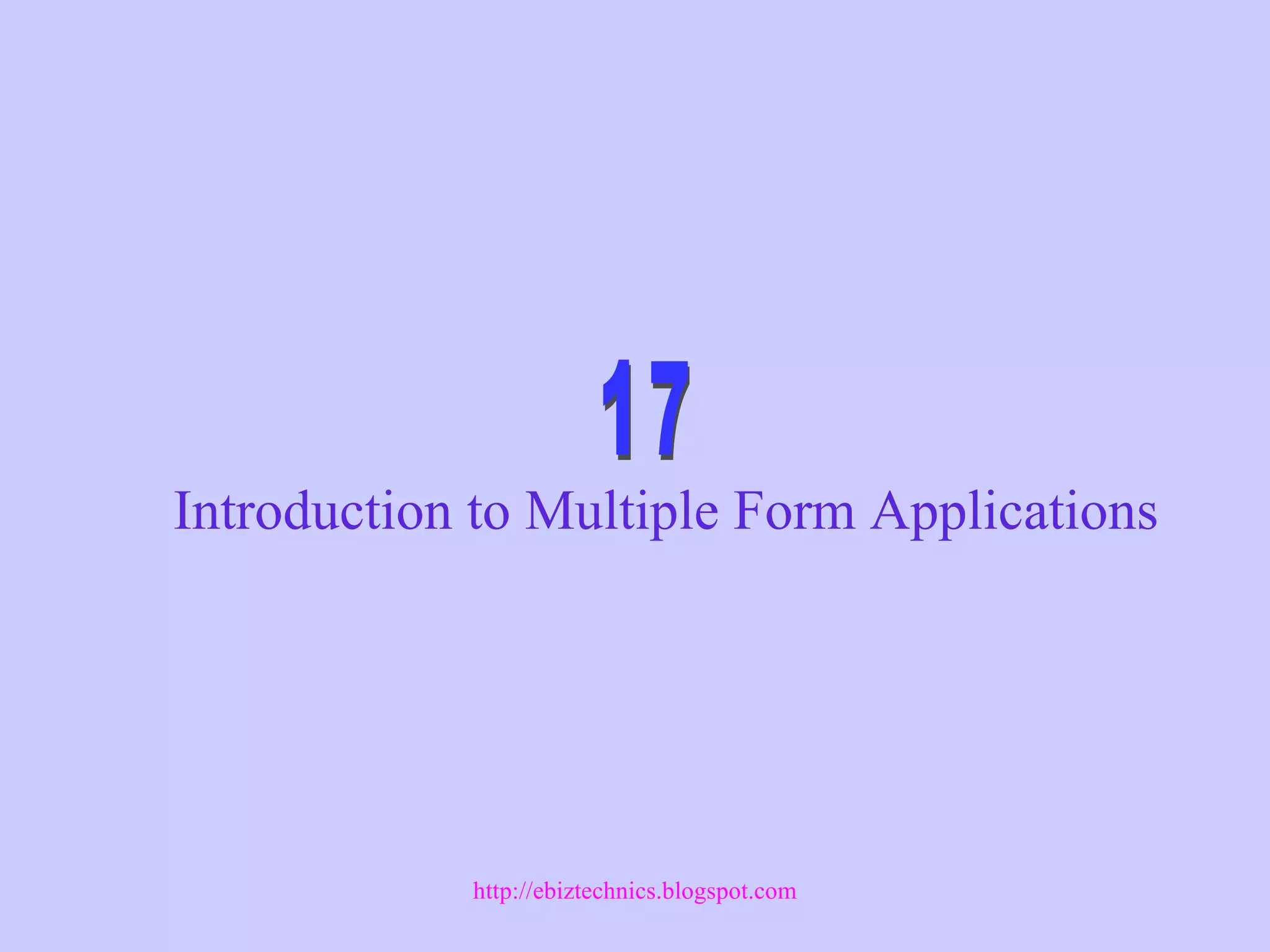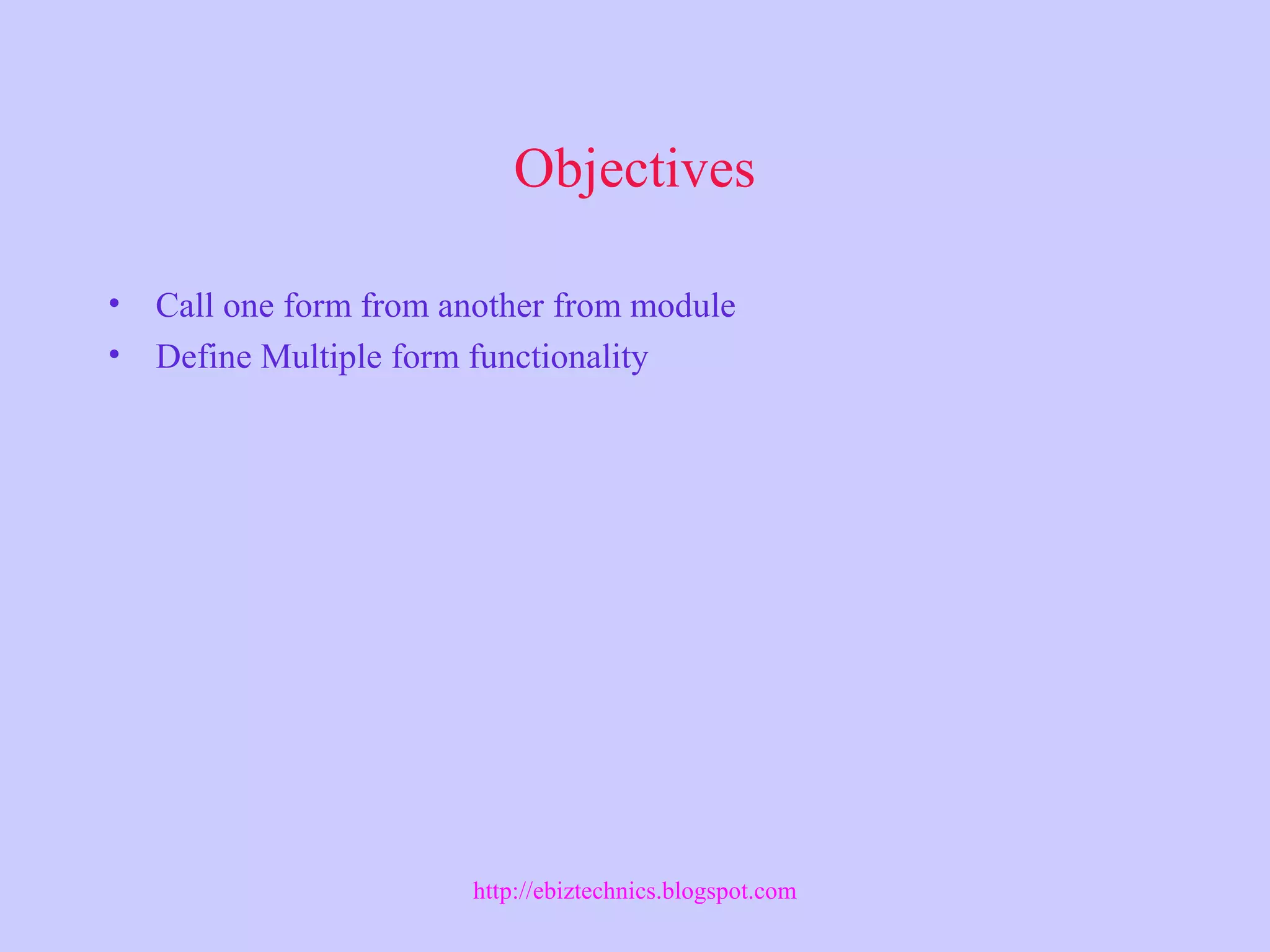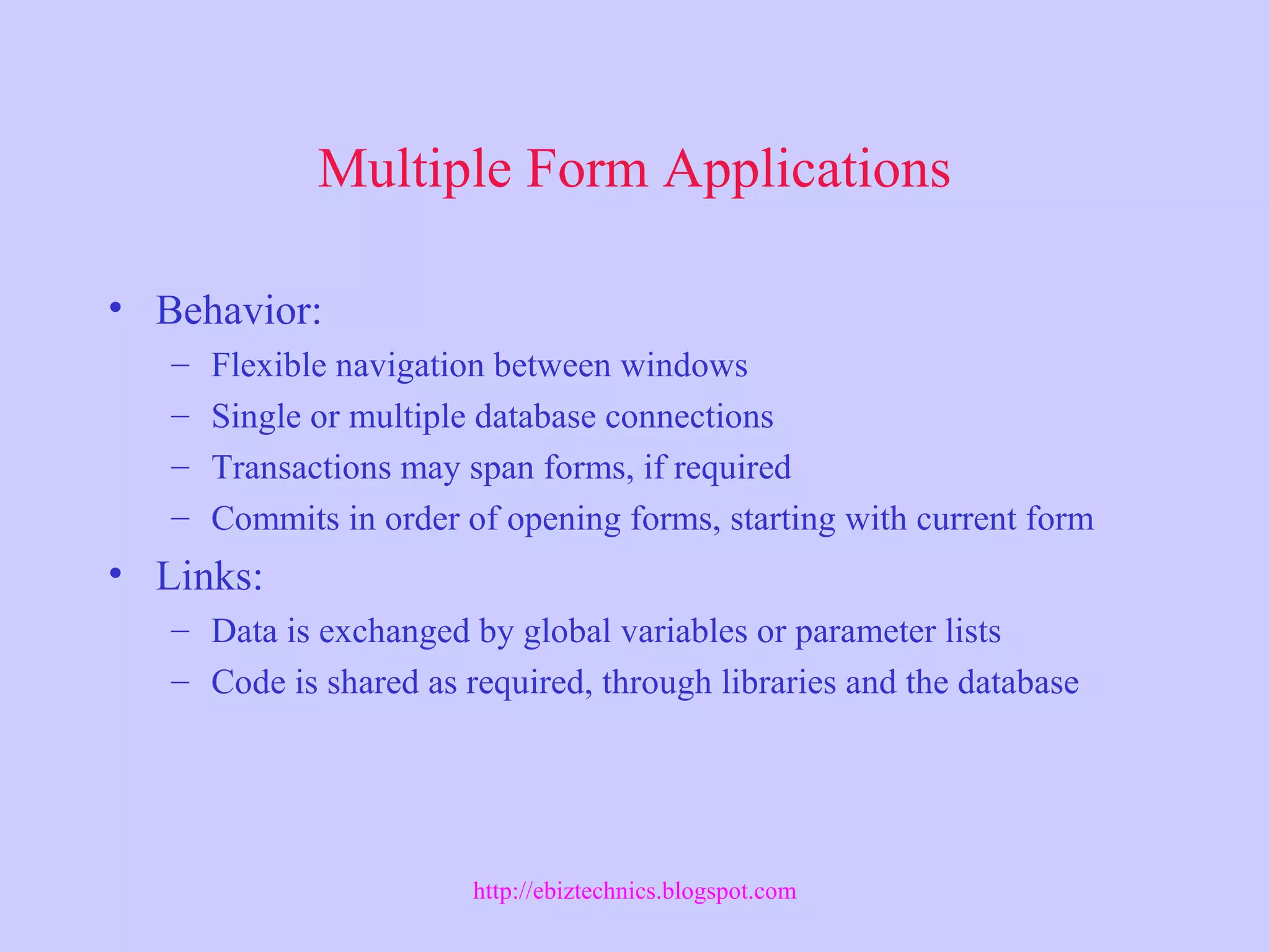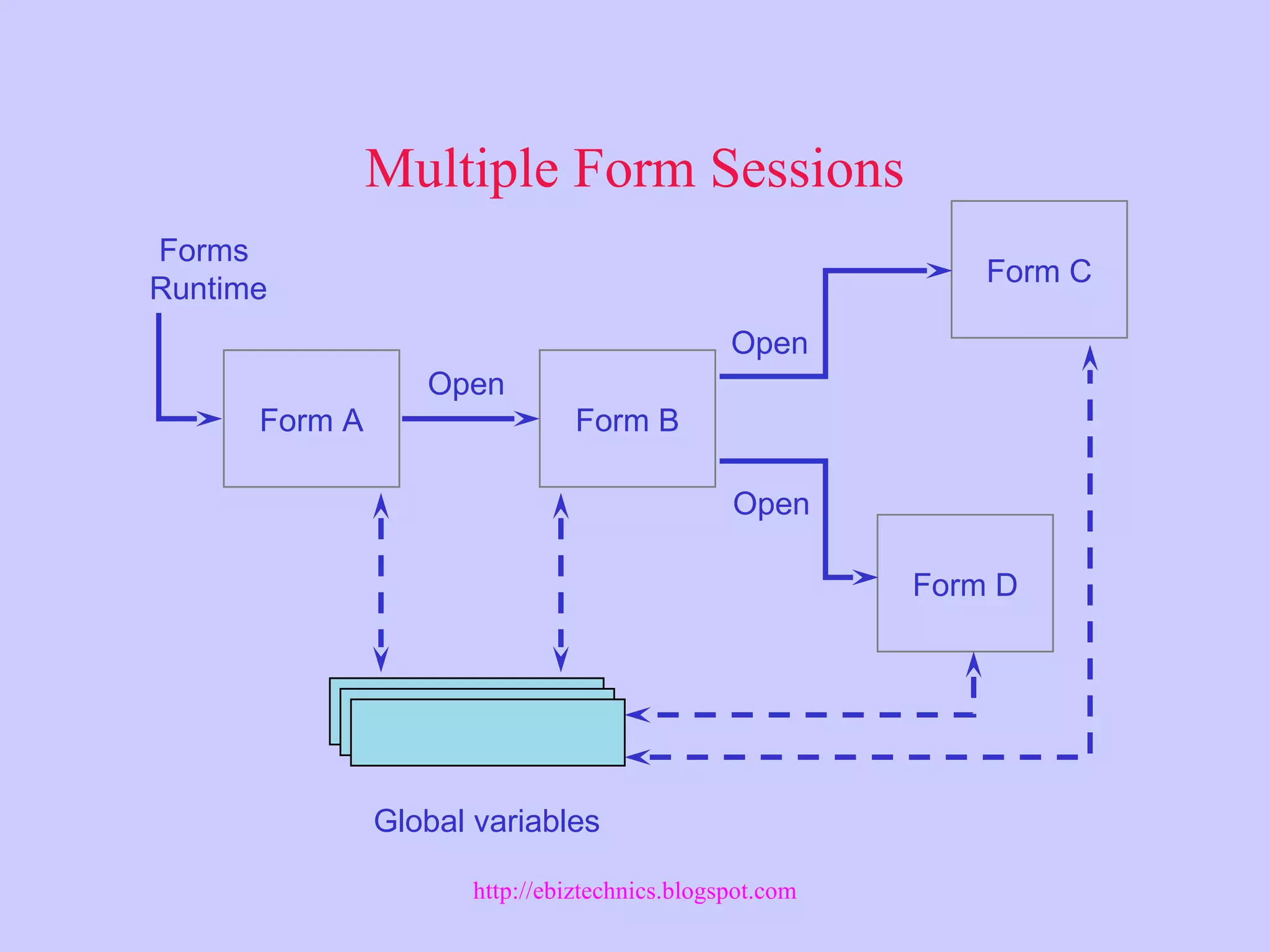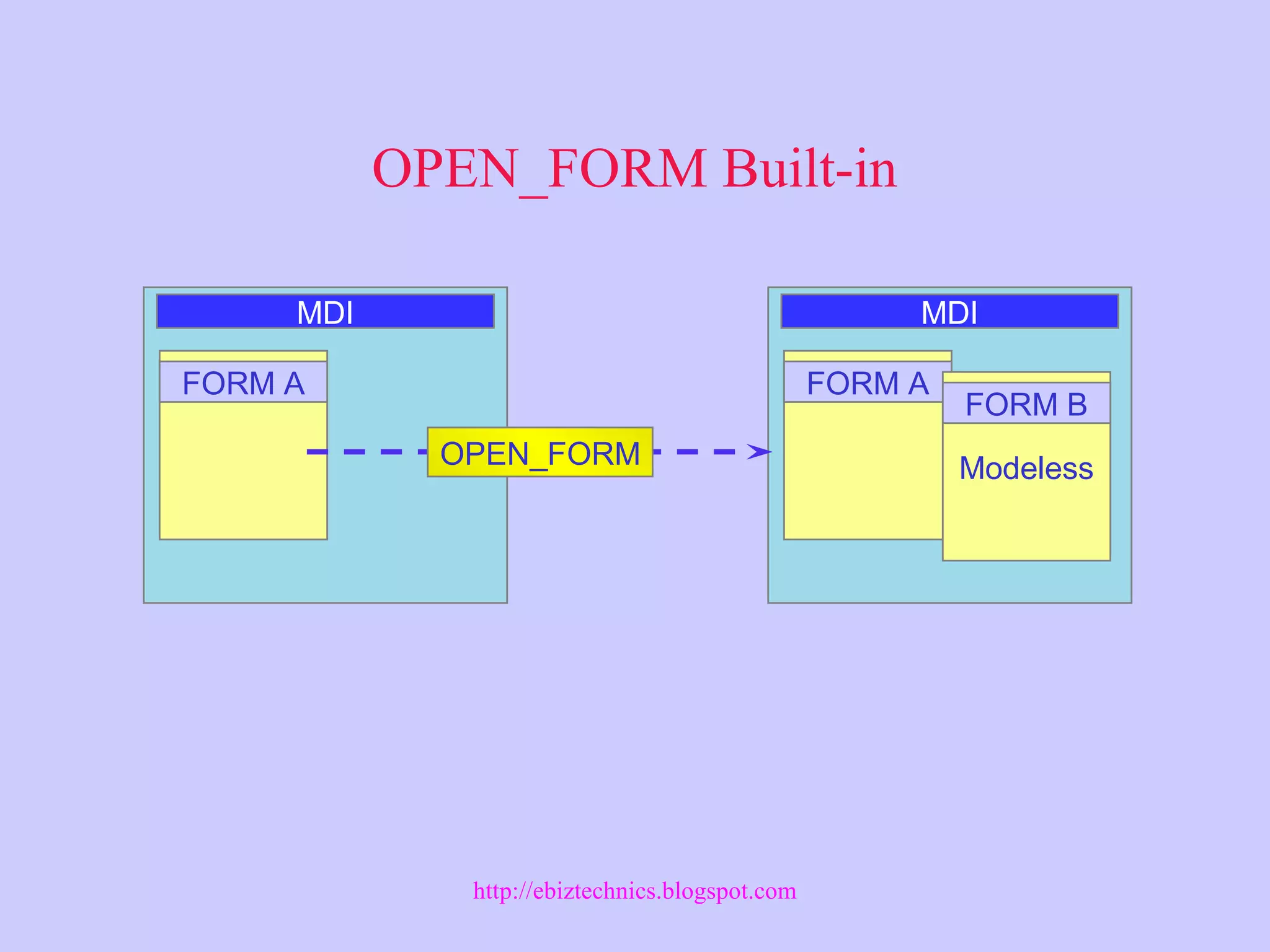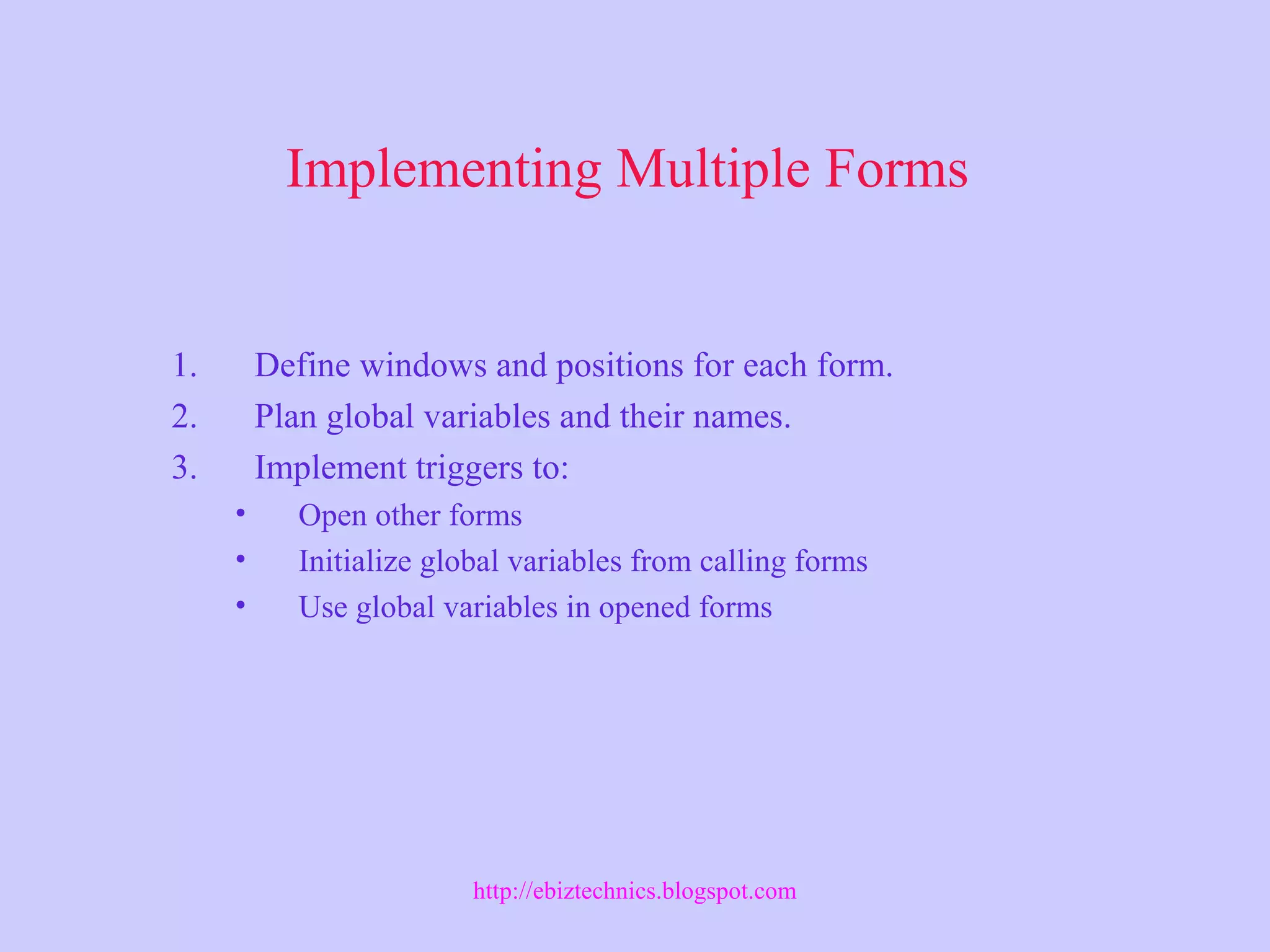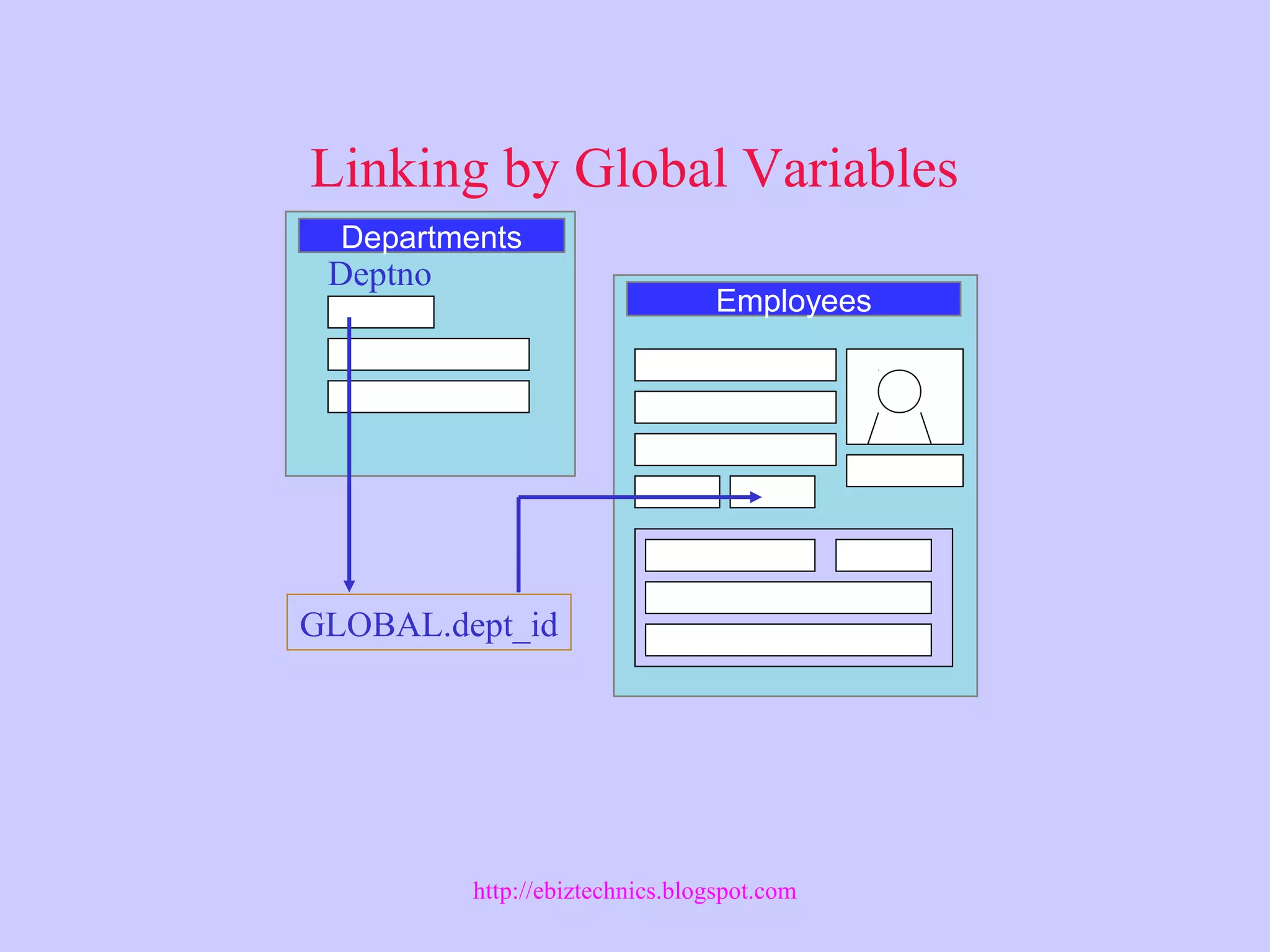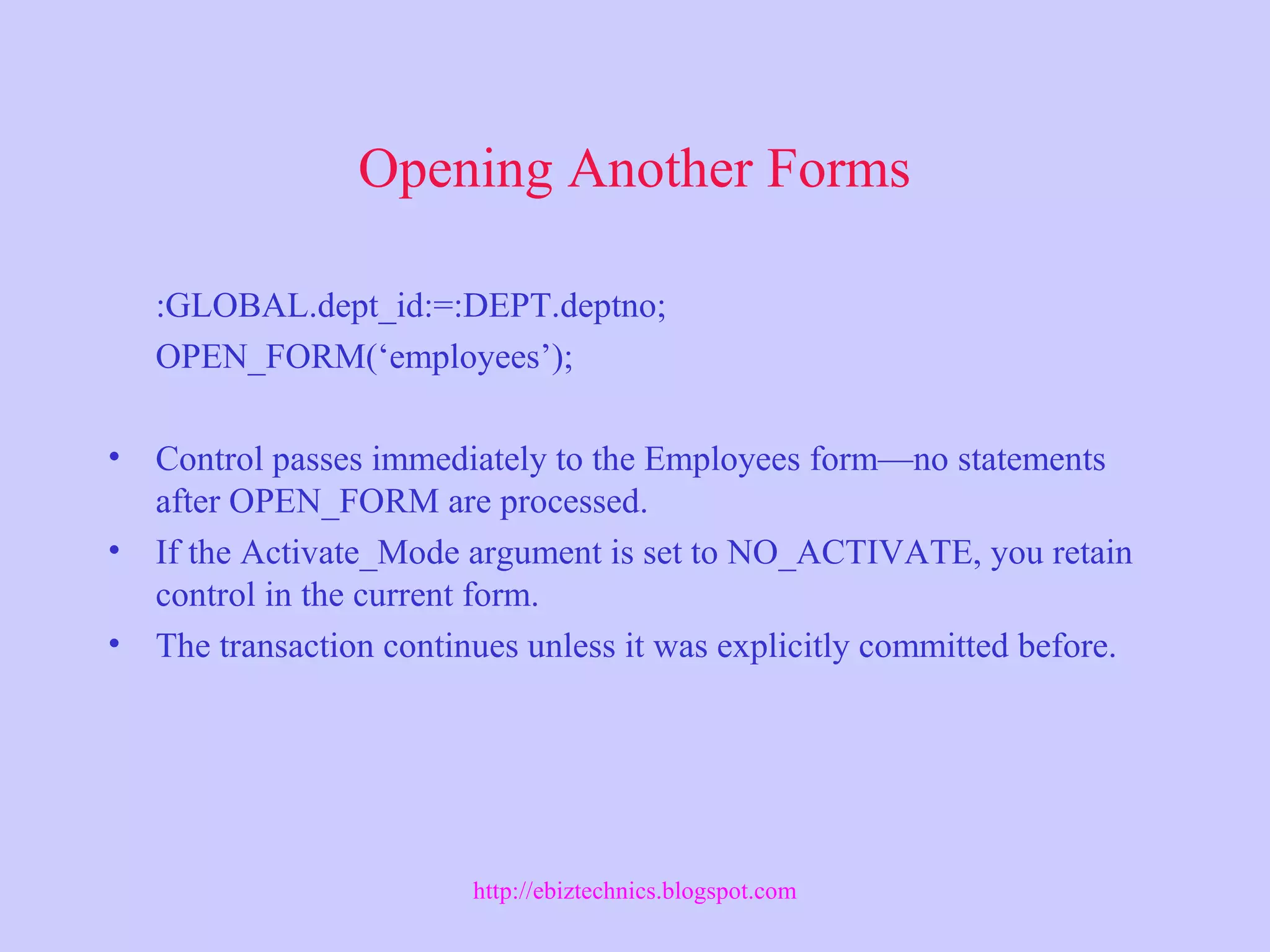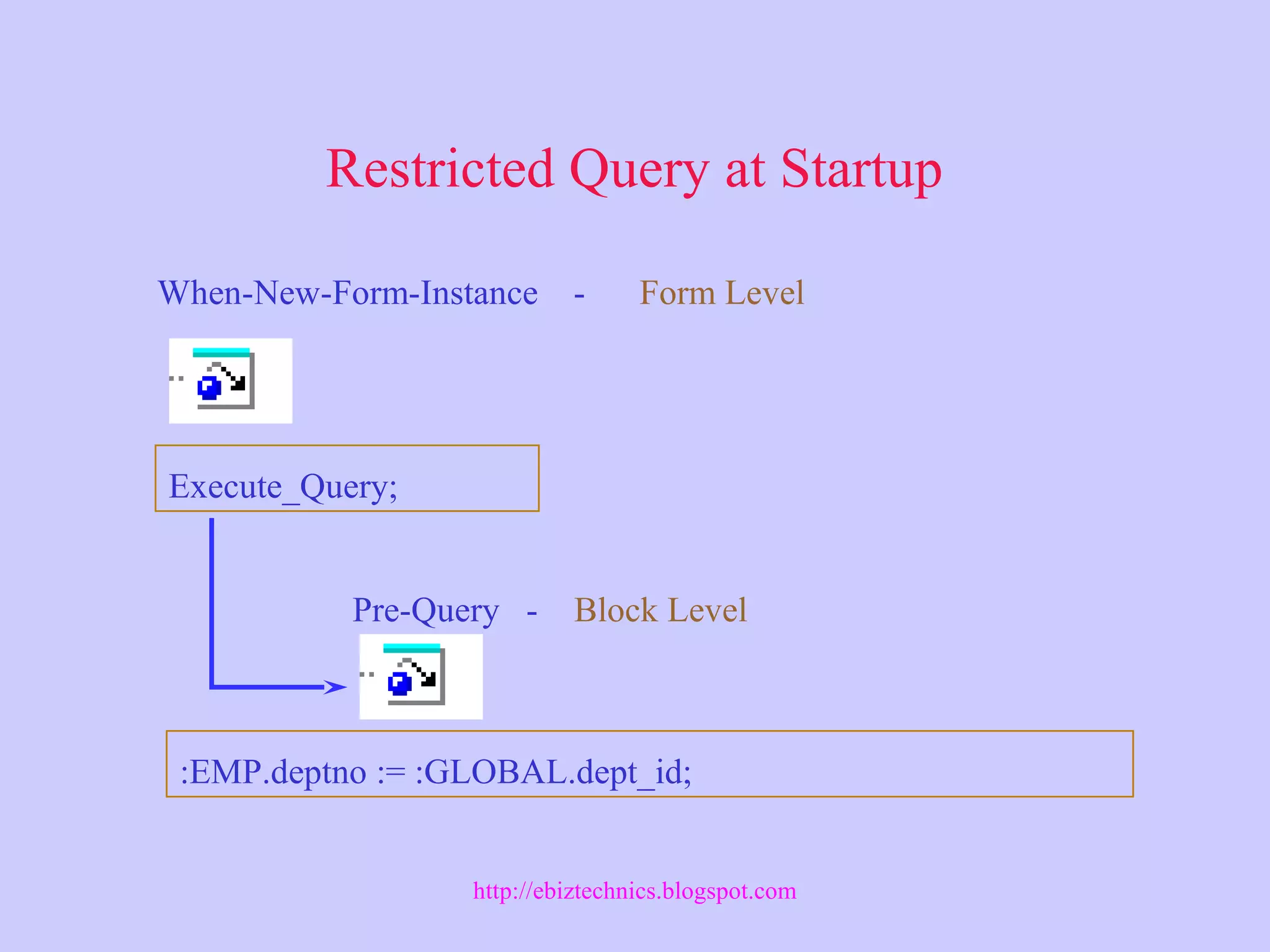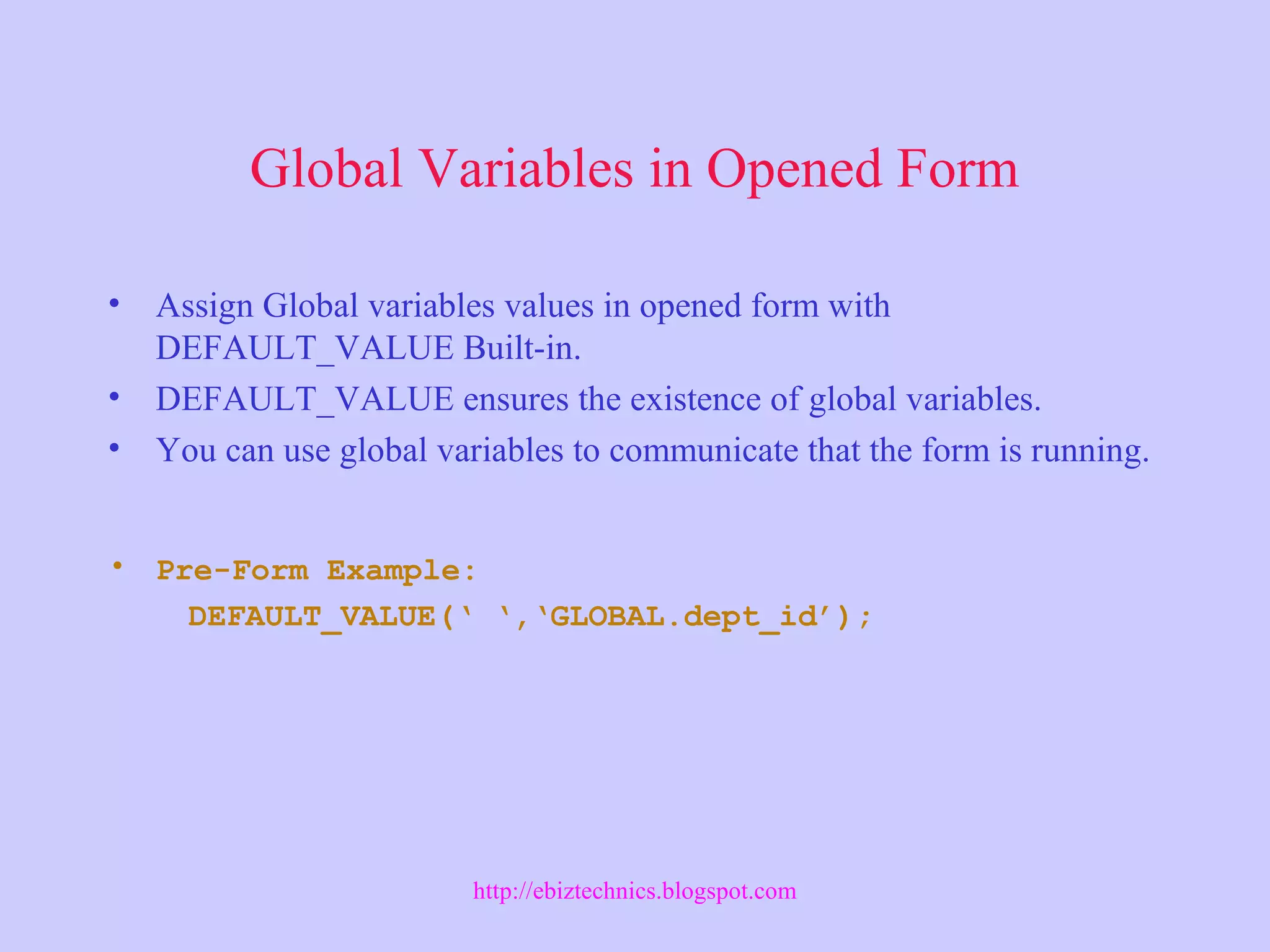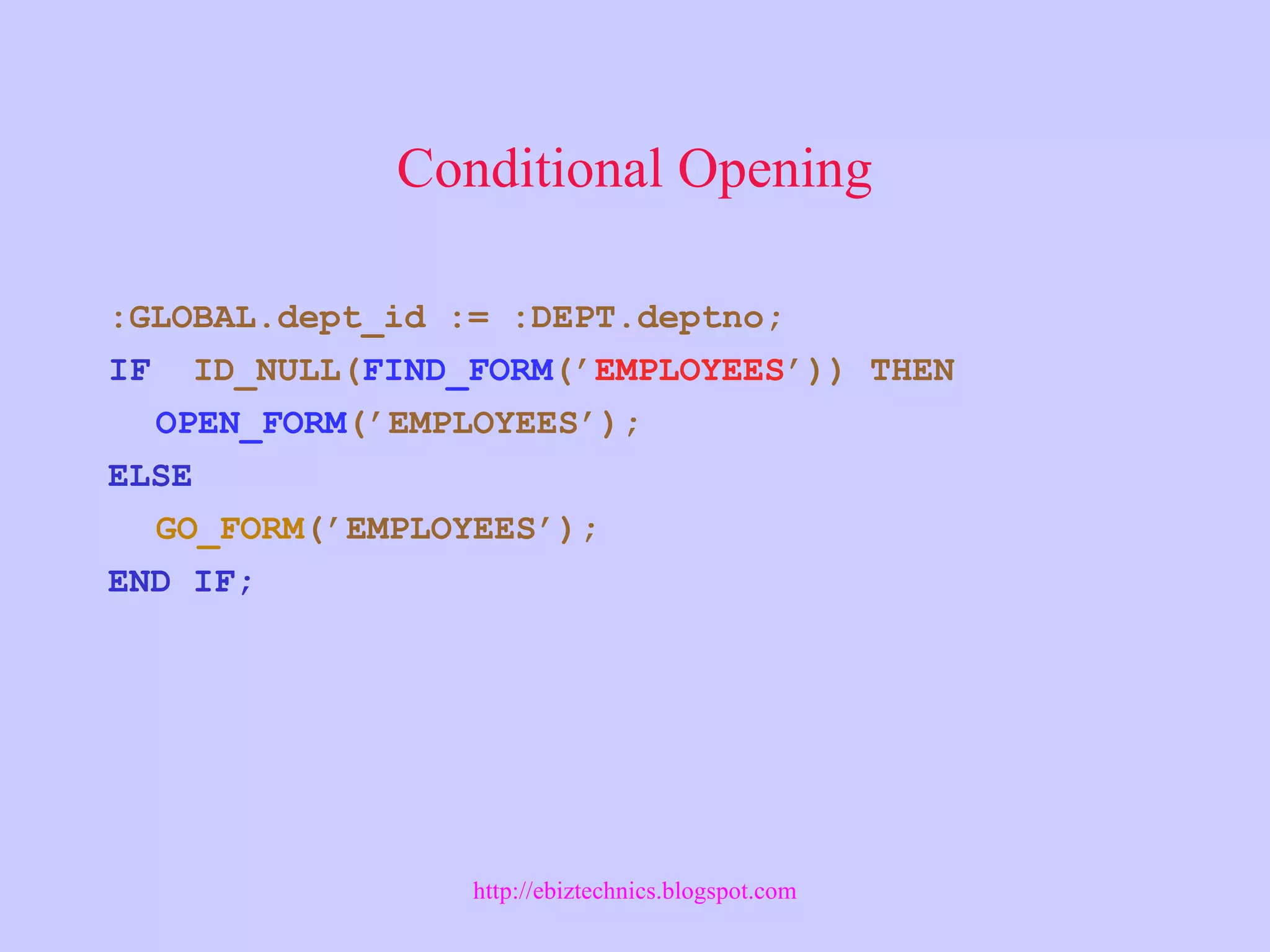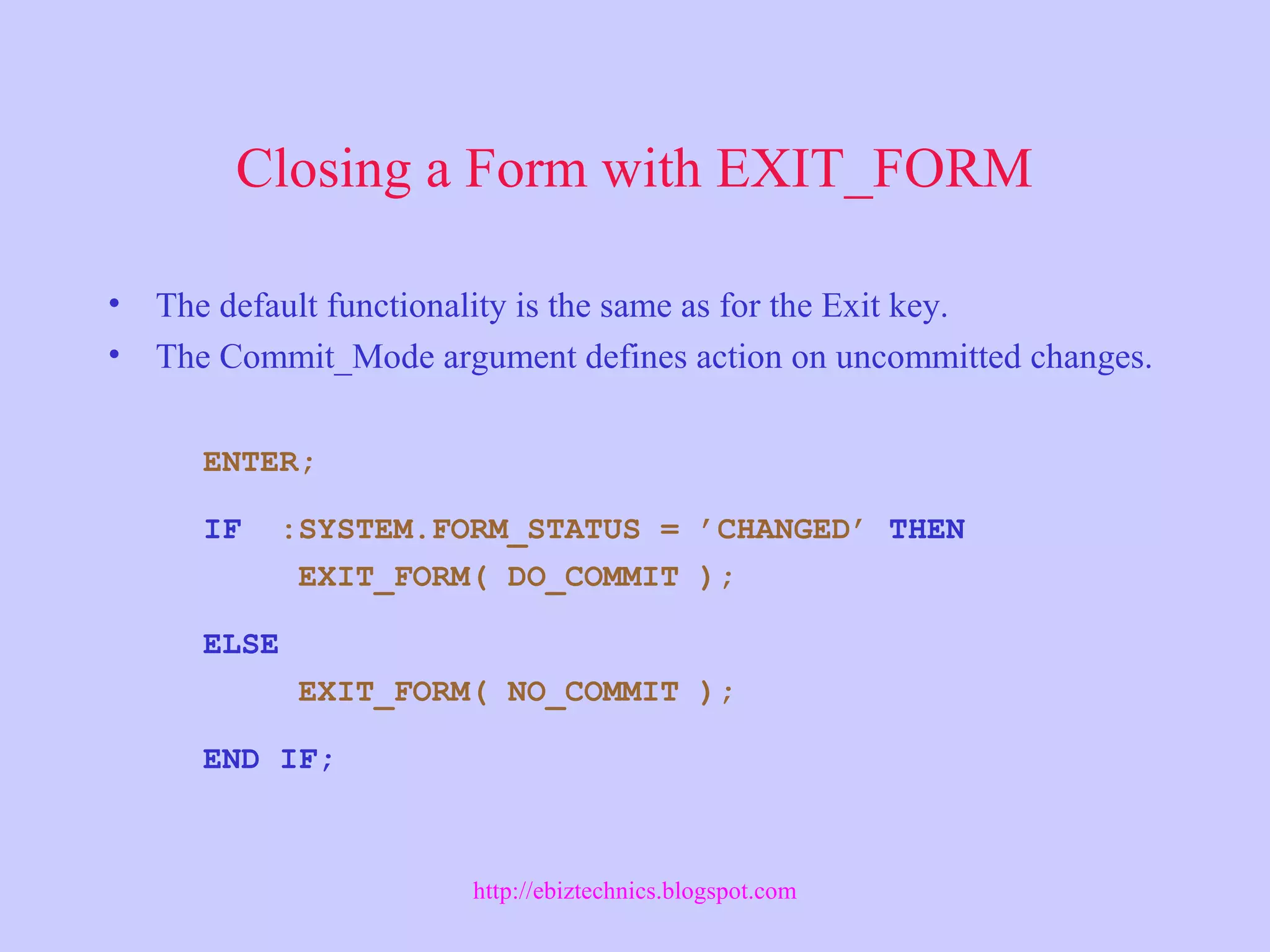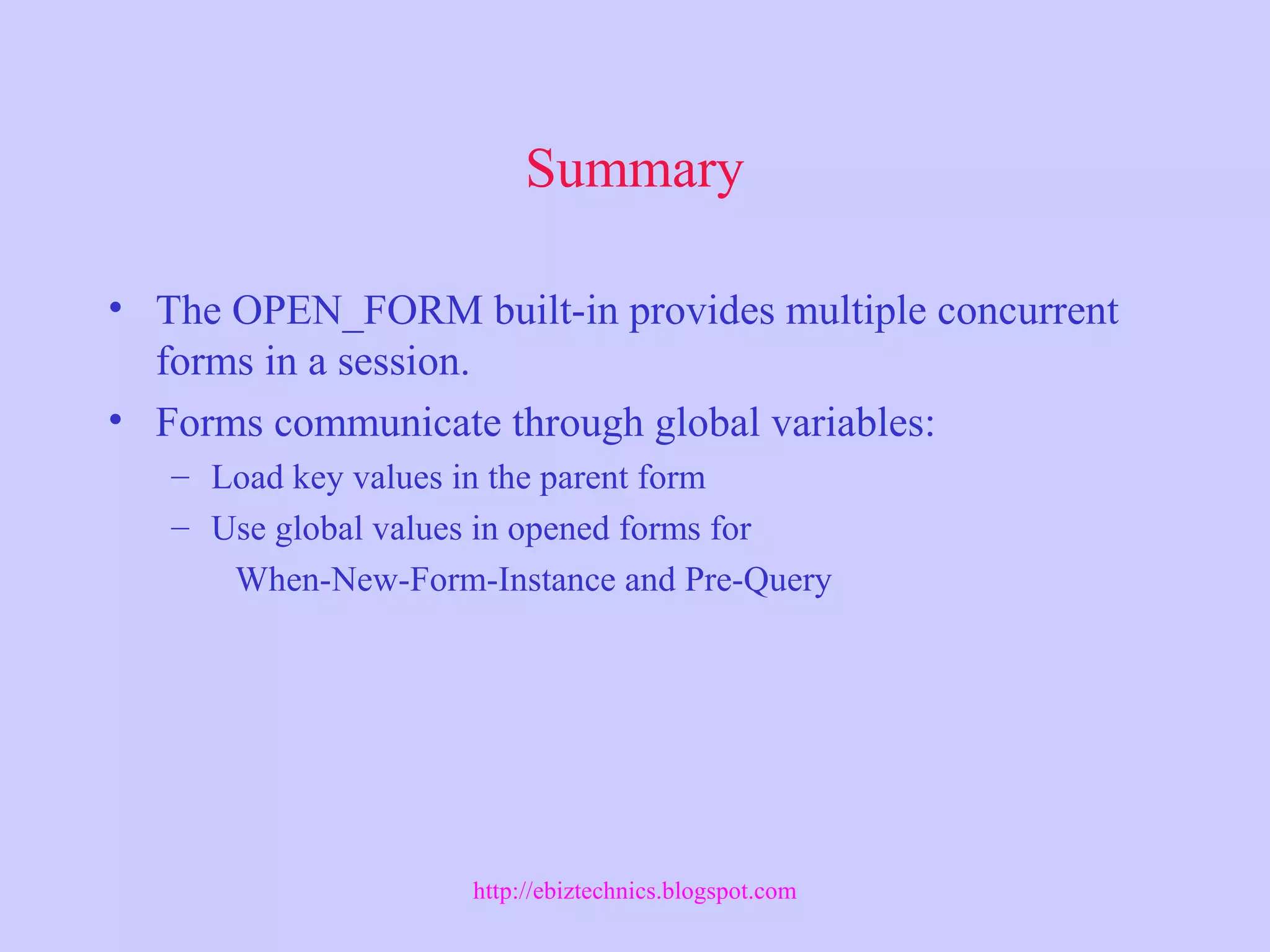This document discusses how to implement multiple form applications in PowerBuilder. It describes using the OPEN_FORM built-in to call one form from another, sharing data between forms through global variables, and transaction management across multiple concurrently open forms. Forms can exchange data via global variables or parameter lists defined in the database. Navigation between forms is flexible and transactions may span multiple forms as required.
